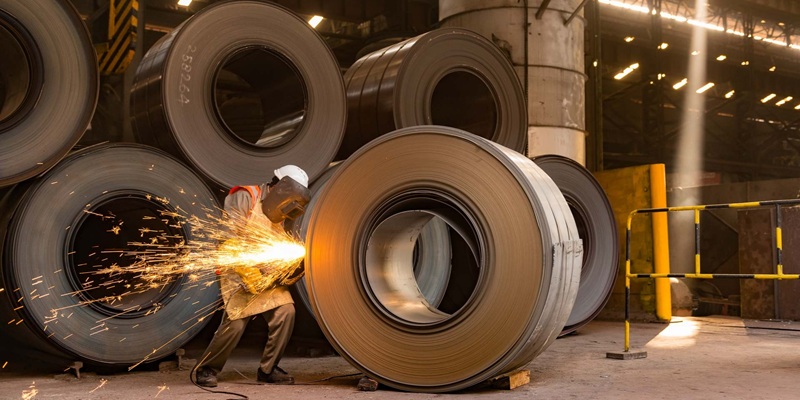Schedule a Call Back
Is Indian Pump Industry Consolidating?
 Technical Articles
Technical Articles- Aug 07,12
Sometimes it is intriguing when you produce a lot and that too with international standards but fail to meet the product demand. That's what is happening in the Indian pump industry. The pump industry that begun to take shape in 1905 is entering a different phase today, after going through various stages in the last 100-odd years. Globalisation has played an important role in this development with more foreign players entering the Indian pump industry. In spite of various avenues ready to be explored, Indian pump companies are focused on the water pump demands of the local market. Why do they not shed their inhibitions and invade the global market? When everything is right, why does everything go wrong? Here's more on what is happening in the Indian pump industry.
 The Indian pump industry is recently bit by the consolidation bug and a large number of acquisitions are in the pipeline. The consolidation of the Indian pump industry envisages many horizontal and vertical mergers. Pump manufacturers at certain levels are merging with one another to survive. Or sometimes, bigger companies acquire a lot of small ones.
The Indian pump industry is recently bit by the consolidation bug and a large number of acquisitions are in the pipeline. The consolidation of the Indian pump industry envisages many horizontal and vertical mergers. Pump manufacturers at certain levels are merging with one another to survive. Or sometimes, bigger companies acquire a lot of small ones.
Such consolidation invites swift changes in technology, economy, legislation, market and customer expectations from the newly formed company. To quote Mr N K Ranganath, Managing Director of Grundfos India, "Competition has increased but competitors have not." These consolidations are usually proposed by MNCs and the local management controls them. Operation cost has substantially reduced as a result of such mergers.
Recently, Mr Rajiv Amin, President of Indian Pump Manufacturer's Association, outlined the sectoral distribution of the pump industry, to an online publication. According to him, the Agricultural sector is a market worth Rs 3000 crore of which the organised sector accounts for 40% share with the rest cornered by the players in the unorganised sector. Contrary to expectations, the Bureau of Energy Efficiency's (BEE) star labelling program did not make any difference in this segment. The Industry sector is valued at Rs 1000 crore of which the organised sector takes a share of 80% and the unorganised enjoys 20% share. The public health and services segment has a market value of Rs 600 crore, which is highly dominated by the organised sector with only some crumbs going to the unorganised sector. Other miscellaneous markets like mines and dewatering are worth Rs 200 crore of which 95% is fulfilled by organised sector and 5% is fulfilled by the unorganised sector.
The Export Scenario of Indian Pumps
The Indian pump industry mainly concentrates on water and waste water treatment at local levels. Scarcity of water has made a significant impact on the fortunes of the Indian pump industry. Very few of them, especially the giants, cater to the needs of chemical, oil and other industries. India, in spite of excellent skill and quality infrastructure, could not meet international demands due to lack of acceptance from the US and European countries. India manufacturers supply pumps to more than 60 countries, which include developed countries, but still hold only a miniscule 1.75% share of global pump market.
In spite of heavy domestic and international competition, the Indian pump industry is expected to grow by 7 per cent, according to Mr Y I Buch, President, Indian Pump Manufacturers' Association. "Technical know-how of global standards has been well absorbed," he adds.
However, the Indian pump industry has been witnessing a colossal growth in recent times. According to Mr P J Lakhapate, a Chemical Engineer and Consultant who works in the field of shaft and casing alignment, coupling alignment, balancing of shafts and impellers, the US would continue to dominate as the world's largest purchaser of pumps for the next 5 years. He also says that Chile's copper industry, Germany's chemical industry, the oil industry of the Middle East and Canada's paper and pulp industry would become major buyers of Indian pumps. Speaking to Industrial Products Finder, Mr Sridhar Acharya, General Manager of Dover India said that India has its main export market in the Oil and Gas sector only in countries like United States and the Middle East. He adds that only "3 per cent of Dover Products are marketed to the US."
Indian Pumps and International Technology
Owing to the demand from agriculture, petroleum and domestic utilities among many others, the number of pump manufacturers in India has crossed 500 in the past 7 decades. Many of the pumps are made with international technology. The Indian pump industry is surplus enough to hold an important position in the country's economy. Except for special vacuum pumps, imports are relatively rare in this industry. Indian pump industry has collaborated with American, Australian and Japanese technologies to produce pumps of better technological applications, design and quality. International names like KSB, Sulzer, Weir and Denver Orion have blended themselves with Indian engineering. New grades and alloys of metals have found their way into pump manufacture, which result in the diversification of uses.
Though the regular pump manufacturers fight stiff competition, companies like Dover that produce advanced pumps like Chemicor series, E-Series, Futur series and Biocor series have less competition and could rather be considered as established. Dover has now diversified its product portfolio to 9 types and has a host of brands to its credit. The company began its acquisition of Wilden, which is followed by Abaque, Almatec, Blackmer, Envirogear, Fluid Dynamics, Gris World, Mouvex, Neptune, Quattroflow, Red Screw and System One. Of these mergers, Red Screw is Chinese and Quattroflow is German.
Grundfos has acquired US company Enaqua which is known for disinfecting water through UV technology.
MNCs import raw materials and assemble them locally to sell products in India. These assembled products boast international quality. Many of the pump giants have their own R&D units, which strengthens their product quality and sales.
Trouble Shooting Local Infrastructure Problems
Among the pump industry locations in India, Rajkot and Coimbatore are at the forefront. Rajkot brims with more than 100 per cent growth. Out of the 350 units located here, only around 40 are considerably large. The Energy and Resources Institute (TERI) has set up a Common Facility Centre from which the pump industries at Rajkot would obtain R&D and testing facilities. The Indian pump manufacturers have good logistics support to export goods with Coimbatore using the Chennai port in Tamil Nadu and Rajkot using the Mundra port in Gujarat.
The acute power crisis in Tamil Nadu has made a strong relocation impact on the pump industries of Coimbatore. Amidst the heavy competition that exists in the pump industry, losing seasonal sales is almost equal to closing shop. Therefore a few pump industries from Coimbatore, who could not afford to cut production, have shifted to Rajkot and Ahmedabad in Gujarat, which is the only state in India with the least power problems.
It is interesting to note that many diesel engine manufacturers in Rajkot are shifting to the pump industry, a fact revealed by Mr Kamalnayan Sojitra, Executive Director of Falcon Pump, and a member of Rajkot Engineering Association's Pump Committee. Such new entries from other industries would affect the market of water pump manufacturers and not the specialized pump sector.
Other Initiatives
Rajkot-based pump manufacturers have planned to bring uniformity in the submersible pump designs with the help of Common Facility Centre. According to Mr Dharamshi Bedia, Managing Director, Silver Engineering, such uniform design benefits small manufacturers and buyers simultaneously and controls manufacturing costs. The association has also proposed to establish an R&D centre at an estimated cost of Rs 7 crore, of which 70 per cent would be borne by central government, 20 per cent by state government and the remaining funds contributed by industry players. Development of Rajkot as a pump cluster is full fledged and a similar initiative has been taken at Coimbatore too.
Financial Aspects of the Consolidation
When consolidation occurs, the financial positions of the merging companies take a significant turn. These financial changes could neither be generalised nor predicted. Each case has its own unique flow of incidents and results. These changes depend upon the key people and administration of the companies that consolidate. There is not much of government interference in this context. If the company is politically involved, the consolidation gets political impact, not otherwise.
If the company is listed, consolidation requires permission from shareholders and if the company is in the unorganised sector, there is not much ado on the deciding authority. Since most of the possible consequences are factored into before consolidation, disputes are rare. The budgets and the financial statements of the merging companies continue as per the decisions that are taken. Since the idea of consolidation takes place when a company does not wish to continue or when a company wants the advantages of another, the authority to decide gets easily fixed.
The consolidated company follows the dominating company's culture and business policies. The auditors of the consolidating companies provide their clients with necessary advice in both legal and taxation levels. The share value of the newly formed company gets adjusted as per the performance or according to public perception of the newly formed company.
The consolidations seem to be a positive sign for the future of Indian pump industry and things are going in the right way with no sort of disappointment for anyone. After a glimpse of the current status of the Indian pump industry, one could understand that efforts are made to get better. The Indian pump industry does seem to hold a lot of hope and ample international encouragement through FDIs. With the help of dedicated and shrewd guidance, Indian pump industry could definitely scale better heights in its share of the global market.
Related Products

Delvo Screwdrivers
Pneumec Kontrolls offers a wide range of Delvo screwdrivers. Delvo screwdrivers, made by Nitto Kohki, are well-regarded electric screwdrivers used in industrial and assembly line settings. Here are Read more

Togawa Paint Hoses
Pneumec Kontrolls offers a wide range of Togawa paint hoses.

Silent Wide Range Linear Slides -QW Series
IBK Engineers Pvt Ltd offers a wide range of silent wide range linear slides - QW Series














